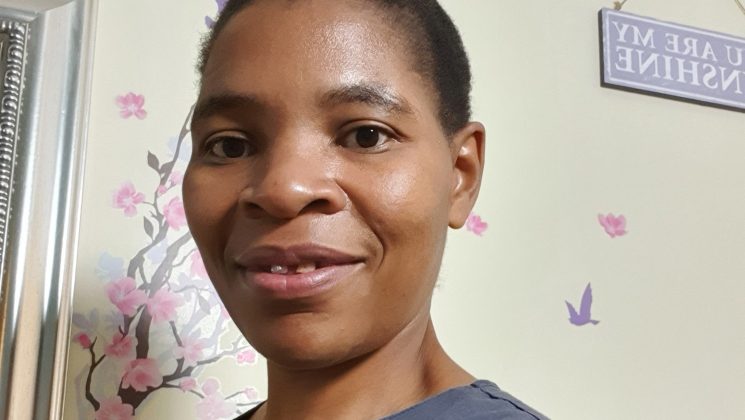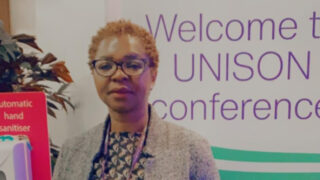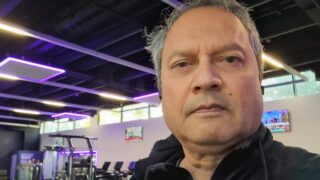My name is Sarudzai Irene Dzvairo. I was born in Zimbabwe in a little town called Rusape in Manicaland Province. I grew up in that little town and did all my primary education at a village school, before going on to secondary and high school.
As the eighth of nine children, I was the second one to reach that level of education because of financial problems within the family.
When I was doing my O levels my prayer was to pass and proceed to A level, this happened and my prayer again was to pass and be the first to go to university. This prayer was answered and I got a place at a university.
Once there, my prayer was to be the first one in my family to go abroad, either to further my studies or to get a better job to help look after my disadvantaged family members.
God answered this prayer as well and I got married in 2014. My husband was already living in the UK but we had to apply for a visa twice — and appeal the second rejection — for me to join him in 2016.
I tried in vain to find a job in my profession, accounting, but started work as a care assistant at a home in Stevenage after a few months.
Some of the older people have dementia and can be very aggressive while some are unable to get out of bed and are end of life so you need to be very patient and caring.
Some of them don’t like Black people at all and will call you all sorts of names.
I get on with most of the people I work with because I learn quickly and do what’s required of me and management have been supportive.
One day I was working with two English ladies and they gave me all the hard work to do by myself and did the easy one together. I didn’t argue but afterwards I was advised to write a letter of complaint to the manager who dealt with it well. I was happy because no-one should feel bullied in the workplace.
After I returned from maternity leave I started working nights. I had to ask my manager if I could finish early since my husband was working during the day and was always late getting public transport back from Welwyn. Night shift is not easy, as there are only two members of staff for more than 30 residents. When someone’s new or not that hardworking they’re often put with Black staff because managers don’t think they’ll complain. Many Black people have left because of this.

When the pandemic started in March we did not have any masks to protect ourselves. Most carers and nurses were off sick at some point but only got statutory sick pay, which is not enough to live on. When residents died we were not told anything.
Now though we have enough PPE and staff and residents are all being tested regularly.
Recently I had a problem with one of the nurses and I was left with no choice but to go home in the middle of the night.
I complained to the manager in the morning — I admitted I was wrong to go home but explained everything and accepted a verbal warning.
I thought the manager had taken the nurse’s side — the nurses can often get away with what they want to care staff because ‘nurse knows best.’
Later I had a supervision with the most senior nurse and explained what had happened to him. He was shocked because I don’t normally fight with anyone and thought there must have been a trigger.
With UNISON’s advice, I requested a meeting with the manager and nurse in question. I had to wait more than two weeks but one day I got a call from the manager who said she had gone through the issues in the letter and the nurse admitted they were in the wrong and promised to change their attitude towards carers.
My wish is to go to university and further my accounting profession so that I will do something different before something bad happens where I am working right now.
This Black History Month has given me an opportunity to share my story to be read by many people and I hope it is going to touch someone’s heart.




